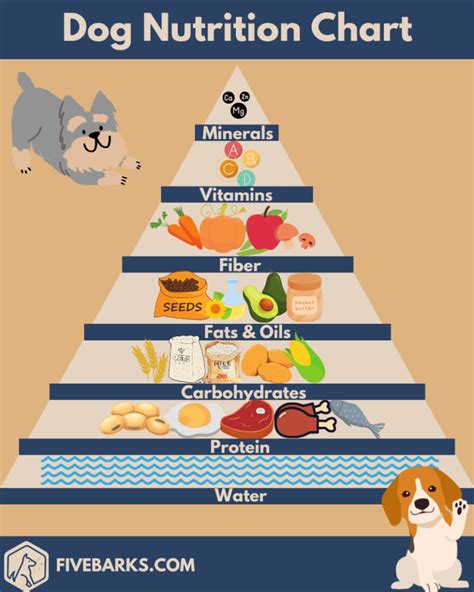Introduction
Canine health and well-being are deeply intertwined with a balanced diet that meets their specific nutritional needs. Among the crucial components of this diet is a comprehensive spectrum of minerals. This article delves into the essentiality of minerals in dog nutrition, exploring their roles, deficiency symptoms, and recommended daily intake.

The Role of Minerals in Dog Nutrition
Minerals are inorganic substances that play a vital role in numerous physiological processes in dogs. They are essential for:
- Bone and teeth health: Minerals like calcium and phosphorus contribute to strong and healthy bones and teeth.
- Muscle function: Magnesium, potassium, and sodium regulate muscle contractions and nerve function.
- Energy metabolism: Iron is a crucial component of hemoglobin, which transports oxygen throughout the body.
- Hormone production: Iodine is necessary for the production of thyroid hormones.
- Immune function: Zinc and selenium support immune system function and protect against infections.
Mineral Deficiency Symptoms in Dogs
A deficiency in any essential mineral can lead to various health problems in dogs. Common symptoms of mineral deficiencies include:
- Calcium deficiency: Lethargy, bone pain, and muscle weakness
- Phosphorus deficiency: Weakness, anorexia, and bone fragility
- Magnesium deficiency: Tremors, muscle weakness, and seizures
- Potassium deficiency: Weakness, lethargy, and abnormal heart rhythms
- Sodium deficiency: Dehydration, muscle cramps, and vomiting
Recommended Daily Mineral Intake for Dogs
The National Research Council (NRC) has established recommended daily intake (RDI) guidelines for various minerals in dogs. These recommendations are based on the dog’s age, weight, and activity level.
| Mineral | Daily Intake | Unit |
|---|---|---|
| Calcium | 1200-2500 | mg/day |
| Phosphorus | 600-1200 | mg/day |
| Magnesium | 50-250 | mg/day |
| Potassium | 1000-2000 | mg/day |
| Sodium | 100-200 | mg/day |
| Iron | 6-40 | mg/day |
| Zinc | 10-150 | mg/day |
| Selenium | 0.1-0.7 | mg/day |
Addressing Mineral Deficiencies
If a dog exhibits symptoms of a mineral deficiency, it is essential to consult a veterinarian for a proper diagnosis and treatment plan. Individual mineral supplements or a balanced diet can often resolve deficiencies.
Conclusion
Minerals are indispensable components of a healthy diet for dogs. Understanding their roles, deficiency symptoms, and recommended daily intake is crucial for pet owners to ensure the well-being of their canine companions. By providing a balanced diet rich in essential minerals, dogs can thrive and maintain optimal health throughout their lives.





















